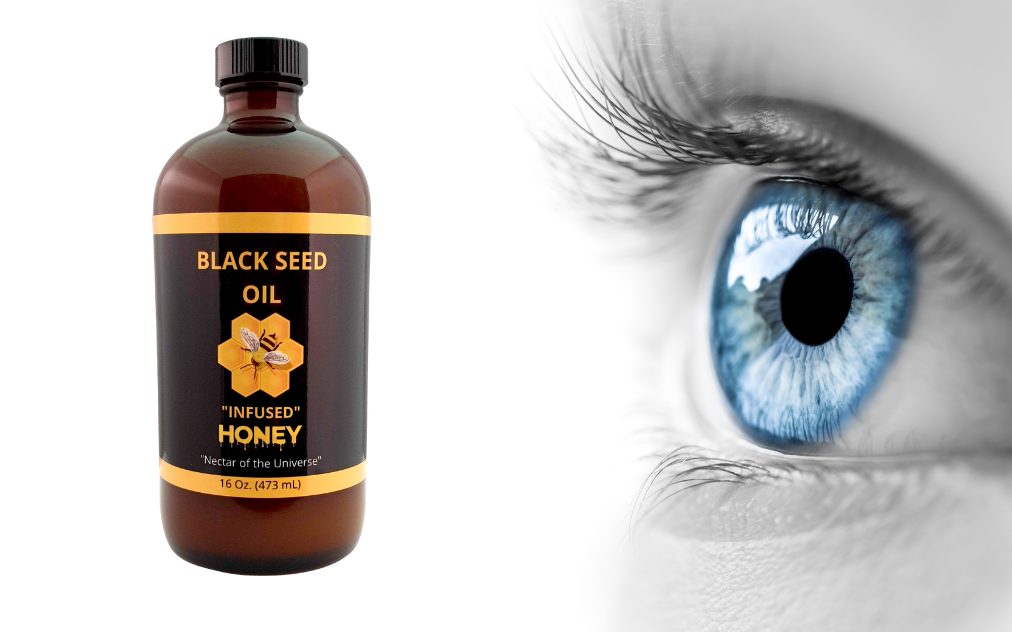Our eyes are among the most important organs in our bodies because they allow us to see and perceive the world around us. With the rise of digital technology and increasing screen time, it’s more vital than ever to prioritize your eyes and take action to keep your eyesight healthy. In this post, we’ll look at the various factors that might affect eye health.
Factors Influencing Eye Health
Genetics, age, diet, and lifestyle are all factors that might have an impact on eye health.
1. Aging – As we age, our eyes become more prone to age-related disorders such as cataracts, glaucoma, and macular degeneration.
2. Genetic factors – This can raise the likelihood of acquiring eye problems such as nearsightedness or color blindness.
3. Diet – A vitamin and mineral-rich diet can help to support eye health and lower the chance of developing eye disorders.
4. Certain habits – Some lifestyle habits, such as smoking or excessive screen time, can raise the risk of eye diseases.
Tips for Keeping Your Eyes Healthy
It is possible to lower the chance of developing eye disorders with the proper care and attention. Here are some pointers to help you do just that:
1. Eat a healthy diet that is rich in vitamins and minerals – A healthy diet rich in vitamins and minerals can help to maintain eye health. Leafy greens, carrots, and fish are particularly beneficial to eye health.
2. Stay hydrated – Maintaining healthy eyes requires staying hydrated, as dehydration can cause dry eyes and result in eye strain.
3. Use protective eyewear – Whether you’re working outside or using power equipment, wearing protective eyewear will help keep your eyes safe.
4. Take screen breaks – Extended screen exposure can cause eye strain and other eye disorders. Frequent screen breaks will to allow your eyes to rest and reduce eye strain.
5. Keep your eye exams – eye exams can help spot eye issues early and ensure that you’re taking the proper actions to keep your eyes healthy.
6. Stop smoking – Smoking raises the risk of eye diseases such as macular degeneration and cataracts.
7. Treat chronic health disorders – Some chronic health conditions, such as diabetes, can raise the risk of eye disease. Correctly addressing these diseases can aid in the maintenance of healthy eyes.
8. Exercise – Regularly exercising can assist in improving circulation, which can lower the chances of developing eye issues.
9. Hygiene – Proper cleanliness can aid in the prevention of eye infections and other eye disorders. Keep your hands clean and avoid touching your eyes.
10. Sun protection – UV rays from the sun can cause eye damage and raise the risk of developing eye diseases. When you’re outside, protect your eyes by wearing sunglasses and a hat.
Common Eye Disorders and How to Avoid Them
There are numerous eye diseases that can impair eyesight and eye health. Here are some of the most prevalent eye disorders, as well as some prevention tips:
1. Dry eyes
When the eyes do not produce enough tears, it causes discomfort, irritation, and possibly visual issues. It is frequently caused by old age, certain drugs, or medical disorders such as diabetes. Take frequent breaks from staring at screens, avoid smoking, and use artificial tears or other lubricating eye drops to prevent dry eyes.
2. Cataracts
Cataracts develop when the natural lens of the eye becomes clouded, resulting in blurred vision. Cataracts can often develop as we age, but they can also be caused by an injury, certain drugs, or conditions such as diabetes. Use UV-protective eyewear, avoid smoking, eat a diet rich in fruits and vegetables, and have regular eye checkups to help prevent cataracts.
3. Glaucoma
Glaucoma is another dangerous eye disease that affects millions of individuals around the world. It occurs when there is an increase in intraocular pressure, which affects the optic nerve and can result in visual loss. Because this disorder frequently has no symptoms until vision loss has occurred, regular eye exams are critical for early detection and treatment. Depending on the severity of the problem, glaucoma can be treated with eye drops, medication, or surgery. Therapy alternatives can help control symptoms and prevent additional vision loss, but they cannot restore lost eyesight. Early detection and treatment, as with other eye problems, are critical for the best outcomes.
4. Age-Related Macular Degeneration (AMD)
AMD is a retinal disease that affects the macula, which is responsible for sharp, center vision. It is the leading cause of blindness in adults over 60. While there is no cure for AMD, you can minimize your risk by not smoking, eating a healthy diet rich in green leafy vegetables and fish, staying fit, and controlling your blood pressure and cholesterol levels.
5. Conjunctivitis
Conjunctivitis is an infection or inflammation of the conjunctiva, the thin, transparent tissue that covers the white area of the eye. Bacteria, viruses, or allergies can all cause it. To avoid conjunctivitis, maintain proper hygiene, avoid sharing personal objects such as towels and makeup, and avoid touching your eyes.
6. Diabetic Retinopathy
Diabetic retinopathy is a disorder that causes damage to the blood vessels in the retina in diabetics. If left untreated, it might result in eyesight loss. Manage your blood sugar levels, maintain your blood pressure and cholesterol, avoid smoking, and have frequent eye exams to avoid diabetic retinopathy.
7. Myopia (Nearsightedness)
Myopia, often known as nearsightedness, is a disorder that causes distant things to appear hazy. It is frequently inherited and might manifest in childhood. Spend more time outside to prevent myopia, take frequent pauses when reading or using screens, and have regular eye exams.
How to take care of your eyes
1. Sunglasses
Sunglasses should be used to protect your eyes from the sun. The sun’s UV rays are well known to be damaging to your skin, but they can also be harmful to your eyes? Long-term UV light exposure increases the risk of cataracts and other eye disorders. Use sunglasses that completely filter UV radiation to protect your eyes. Wear a hat if you’ll be spending a lot of time outside to provide additional shade for your eyes. Use safety glasses that give both UV protection and impact resistance if you work outside.
2. Allow your eyes to rest.
Long periods of staring at a computer or phone screen can induce eye strain and weariness. Use the 20-20-20 rule to avoid this: every 20 minutes, take a break and stare at something 20 feet away for 20 seconds. Take frequent pauses from your screen, and adjust the lighting in your workstation to reduce glare and eye strain.
3. Eat a healthy and balanced diet
Maintaining good eye health requires a nutritious diet. Include foods high in vitamins A, C, and E, as well as lutein and zeaxanthin, in your diet. These nutrients can aid in the prevention of age-related macular degeneration and cataracts.
4. Stay hydrated.
Drinking enough water is vital for overall health, and it can also help your eyes. Your eyes can become dry and irritated when your body is dehydrated. Keep your eyes and the rest of your body hydrated by drinking lots of water throughout the day.
5. Schedule regular eye checkups.
Frequent eye exams are required to maintain good eye health. Even if you do not wear glasses or contacts, you should have your eyes tested on a regular basis to ensure their health and to detect any potential problems early.
During your exam, your eye doctor can look for indicators of other health problems, such as high blood pressure and diabetes.
How can BSO Honey help your eyes?
While there is some anecdotal evidence that black seed oil, raw honey, and apple cider vinegar (ACV) have some eye health benefits, further research is needed to completely appreciate their potential impacts. Here are some of the potential advantages that have been suggested:
Black Seed Oil:
- Recent research suggests that black seed oil may have antioxidant and anti-inflammatory effects, which may help protect the eyes from oxidative stress and inflammation.
- Black seed oil may also help lower blood sugar levels and prevent diabetic retinopathy, a disorder that damages the blood vessels in the retina.
- Some people believe that black seed oil can help with vision and reduce eye strain, but additional research is needed to back up these claims.
Raw Honey
- Raw honey contains antioxidants, which may help protect the eyes from free radical damage.
- Honey’s antibacterial and anti-inflammatory qualities may also aid in the prevention of eye infections and the reduction of eye irritation.
- Although additional research is needed to completely understand the effectiveness of honey in treating illnesses such as conjunctivitis and dry eyes, it has been used to assist in treating them.
Apple Cider Vinegar
- Acetic acid, which is found in ACV, has been demonstrated to have antibacterial and antifungal properties. This could potentially aid in the prevention of bacterial and fungal eye infections.
- ACV may also aid in blood sugar regulation and insulin sensitivity, which may aid in the prevention of diabetic retinopathy.
- Others say that ACV can improve vision and reduce eye strain, but further research is needed to back up these claims.
Taking care of your eyes is essential for general health and quality of life. You can help protect your eyes and prevent eye diseases that can lead to vision loss by following these tips.
Keep in mind to:
- Use safety glasses.
- Take a break from your screens.
- Maintain a nutritious diet.
- Stay hydrated.
- Schedule regular eye checkups.
- Take your BSO Honey
With these basic tips in mind, you can increase your chances of enjoying good vision for many years to come.
If you’re interested in learning more about how BSO Honey can help improve your overall health, check out some of our previous blogs by checking out our blogs page.
Pick up a bottle of BSO Honey by visiting our online store.

